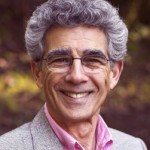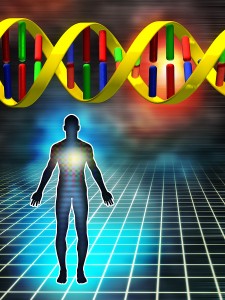 In order to understand why people with an emotional eating problem keep eating after they are full, you have to understand what eating means to them.
In order to understand why people with an emotional eating problem keep eating after they are full, you have to understand what eating means to them.
Emotional eaters don’t want to face unpleasantness in their lives. They don’t want to feel any negative feelings. So they eat to get a pleasurable distraction from the feelings, to numb themselves, or to go unconscious when negative feelings show up in their lives. (I call these negative feelings “triggers,” because they “trigger” eating as an automatic response.)
How long are you able to escape the negative feelings? Usually only for as long as you are eating! So if you are having feelings you want to escape from, how long would you want to eat? … For as long as you possibly can, because the feelings will be suppressed only while you are eating and will re-surface as soon as you stop eating.
So you will start eating whether you are hungry or not in response to your triggers. And you will keep eating long past the point of being hungry whenever the triggers are present. Most emotional eaters have at least 15 different triggers, so at least one is present almost all the time.(As I point out in my free eBook, How To Stop Emotional Eating For Good, http://emotionaleatingreport.com/, triggers are the main source of emotional eating, but beliefs usually are involved also for most people. And the beliefs are affecting you all the time.)
When you de-condition eating as the conditioned response to the triggers, you will no longer automatically want to eat when a trigger appears in your life. At that point you can choose other things to distract you from the negative feelings; you can find alternative ways to cope with the triggers.
But there is a better way to handle the negative feelings.
Instead of looking for a healthier way to suppress your negative feelings, why not just allow them to be? True, they don’t feel good, but what if you just allowed yourself to feel bored, lonely, stressed, anxious, etc. when those feelings arose? What if you faced your feelings instead of looking for some way to avoid them?
Here is a suggestion on how to do it.
After you eliminate a belief using the Lefkoe Belief Process (if you haven’t already done so, go to http://recreateyourlife.com/free where you can eliminate some of the most common beliefs free), you go into an altered state of consciousness where you have the profound experience that you are the creator of your life. You no longer experience yourself as the sum total of your beliefs; you experience yourself as the creator of the beliefs, as consciousness.
In that state it is clear you have feelings, but you are not your feelings. You have thoughts, but you are not your thoughts.
When you are in that state it is easy to make a distinction between your “self” and your “SELF.” After you’ve made that distinction you are able to observe your feelings (which still feel very real) without being at the effect of them, without being run by them.
When I use this method when I am having an upset, I imagine myself outside my body, looking at Morty, and saying to him: “Morty, you are really upset. I wonder what you believe that is causing this upset.” The mere act of talking to myself in this way enables me to distinguish between who I really am and the “Morty” who is having the feelings. And doing that significantly minimizes the impact of the feelings.
Whatever technique you use, once you have de-conditioned eating so it is no longer an automatic, unconscious response to your triggers, see if you can allow yourself to experience your feelings. They might not feel good. But you will survive them, I promise. And facing them is the first step to getting rid of them permanently.
For more details, please see my eBook, The Secret to Ending Overeating For Good, at http://emotionaleatingreport.com. You also can get answers to specific questions at my office, 415-884-0552.
Copyright © 2011 Morty Lefkoe


